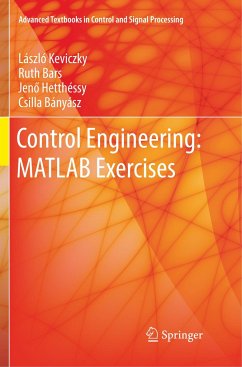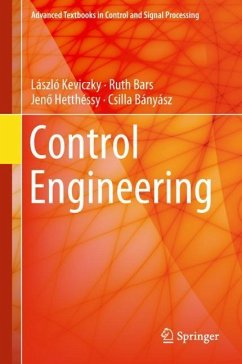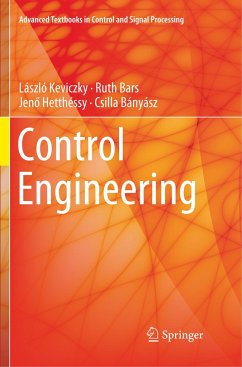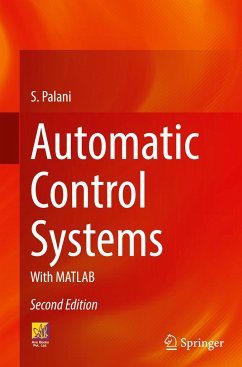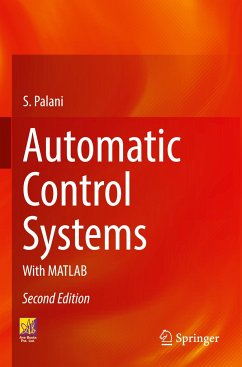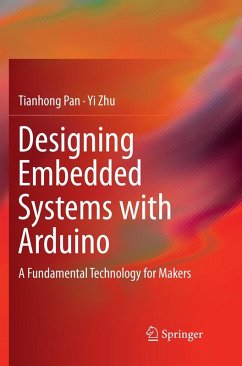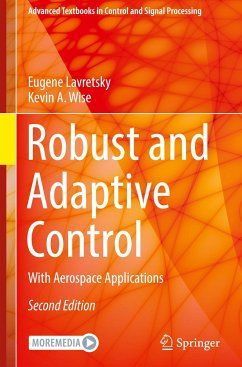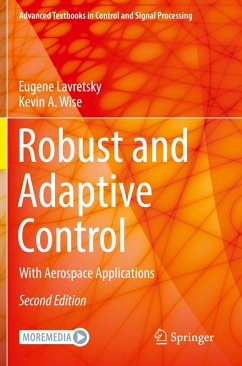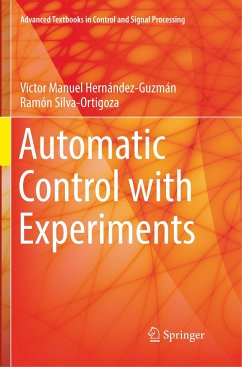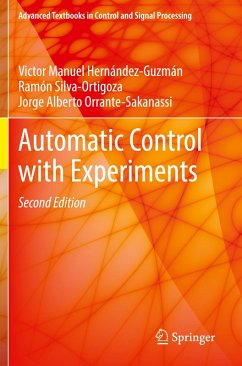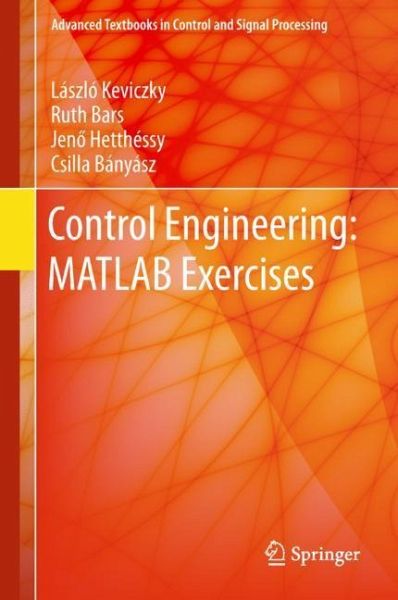
Control Engineering: MATLAB Exercises
Versandkostenfrei!
Versandfertig in 6-10 Tagen
Weitere Ausgaben:

PAYBACK Punkte
33 °P sammeln!




This MATLAB exercise book accompanies the textbook Control Engineering, providing a platform for students to practice problem solving in the analysis and design of continuous and discrete control problems reflected in the main textbook. The book starts off with a brief introduction to MATLAB, control toolbox and Simulink. Subsequent chapters include a short theoretical summary of the topic followed by exercises on solving complex problems using MATLAB commands. These exercises are ideal for students in computer laboratory classes.
Jen¿ Hetthéssy was born in Budapest, Hungary, on April 23, 1948. He graduated from the Electrical Engineering Faculty of the Technical University of Budapest (TUB) in 1971. He first worked at the Research Institute for Electric Power, then joined the staff of the Department of Automation of TUB. As a visiting professor he spent a number of semesters at the Department of Electrical Engineering of the University of Minnesota, USA. Meanwhile he was invited to lead the Process Control Division of the Computer and Automation Research Institute (CARI), Hungarian Academy of Sciences. From 1994 till 2013 he was the vice-head of the Department of Automation and Applies Informatics, TUB. He is currently a senior R&D advisor at the same Department. His special fields of interest are adaptive control of industrial processes and computer controlled systems. In 2013 he was awarded the Knight's Cross medal by the Republic of Hungary. Ruth Bars was born in Jerusalem, on September 2, 1941. She graduated from the Electrical Engineering Faculty of the Technical University of Budapest (TUB) in 1964, and has since worked at the Department of Automation and Applied Informatics at TUB, where she is now an honorary professor. She obtained her doctor of the university degree in 1976. In 1992 she received the Hungarian Academy of Sciences' Candidate of Sciences degree, and her PhD degree. Her research interests are in predictive control and in developing new methods of control education. She has published several university lecture notes and textbooks with co-authors, including a book on predictive control with coauthors R. Haber and U. Schmitz: Predictive Control in Process Engineering: From the Basics to the Applications, published by Wiley in 2011. She has published over 130 papers, mainly in English. In 1999, 2003 and 2006 she was a visiting lecturer at the Helsinki University of Technology, Finland and in 2002 at the University of Louisiana, Lafayette, USA, giving short PhD courses in predictive control. In 2008 she participated in a Marie Curie project related to predictive control at Between 1996 and 2002 she was the head of the IFAC TC on Optimal Control. From 2002 to 2008 was the head of the Coordinating Committee on Design Methods for IFAC. In 2008 she received the IFAC outstanding service award. She was also awarded the Frigyes Csáki medal by the Hungarian Scientific Society for Automation, Measurement and Informatics, and in 2016 she received the Republic of Hungary Knight's Cross medal. András Barta was born in Makó, Hungary, on November 16, 1961. He graduated from the Electrical Engineering Faculty of the Technical University of Budapest (TUB) in 1986, and in 1999 he joined the Department of Automation and Applied Informatics, Budapest University of Technology and Economics. From 1999 to 2002 he worked as a research fellow, then from 2002 as assistant professor and senior lecturer. His research interests are control theory, pattern recognition, and he has supervised a number of student projects in these fields. He is member of the IEEE Computer Society and of the Hungarian Society of Automation, Measurement and Informatics.
Produktdetails
- Advanced Textbooks in Control and Signal Processing
- Verlag: Springer / Springer Nature Singapore / Springer, Berlin
- Artikelnr. des Verlages: 978-981-10-8320-4
- 1st edition 2019
- Seitenzahl: 296
- Erscheinungstermin: 12. Oktober 2018
- Englisch
- Abmessung: 241mm x 160mm x 22mm
- Gewicht: 598g
- ISBN-13: 9789811083204
- ISBN-10: 9811083207
- Artikelnr.: 50591074
Herstellerkennzeichnung
Springer-Verlag GmbH
Tiergartenstr. 17
69121 Heidelberg
ProductSafety@springernature.com
Für dieses Produkt wurde noch keine Bewertung abgegeben. Wir würden uns sehr freuen, wenn du die erste Bewertung schreibst!
Eine Bewertung schreiben
Eine Bewertung schreiben
Andere Kunden interessierten sich für


